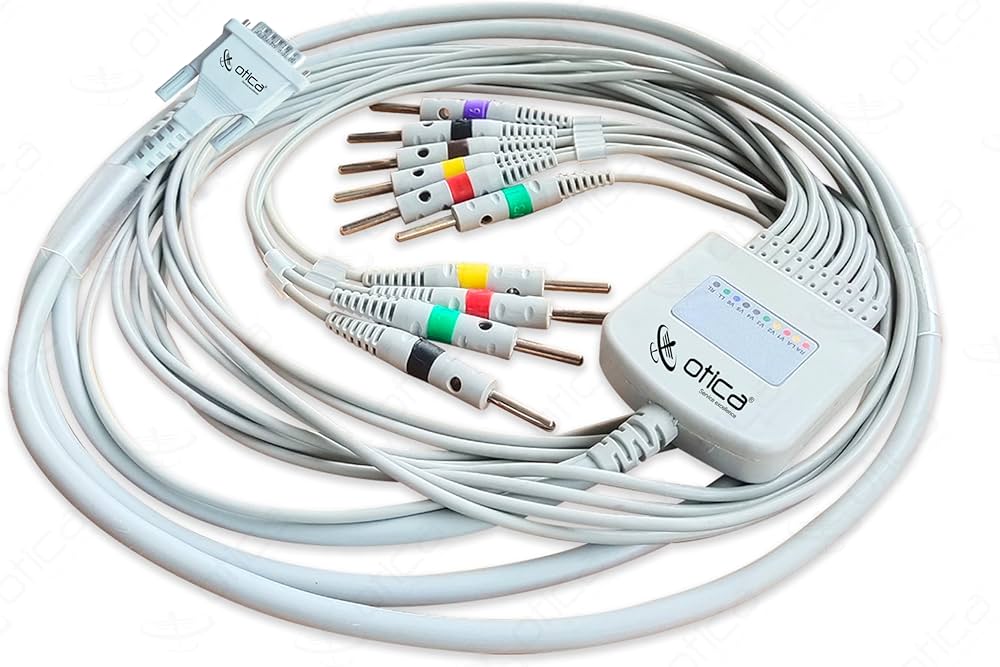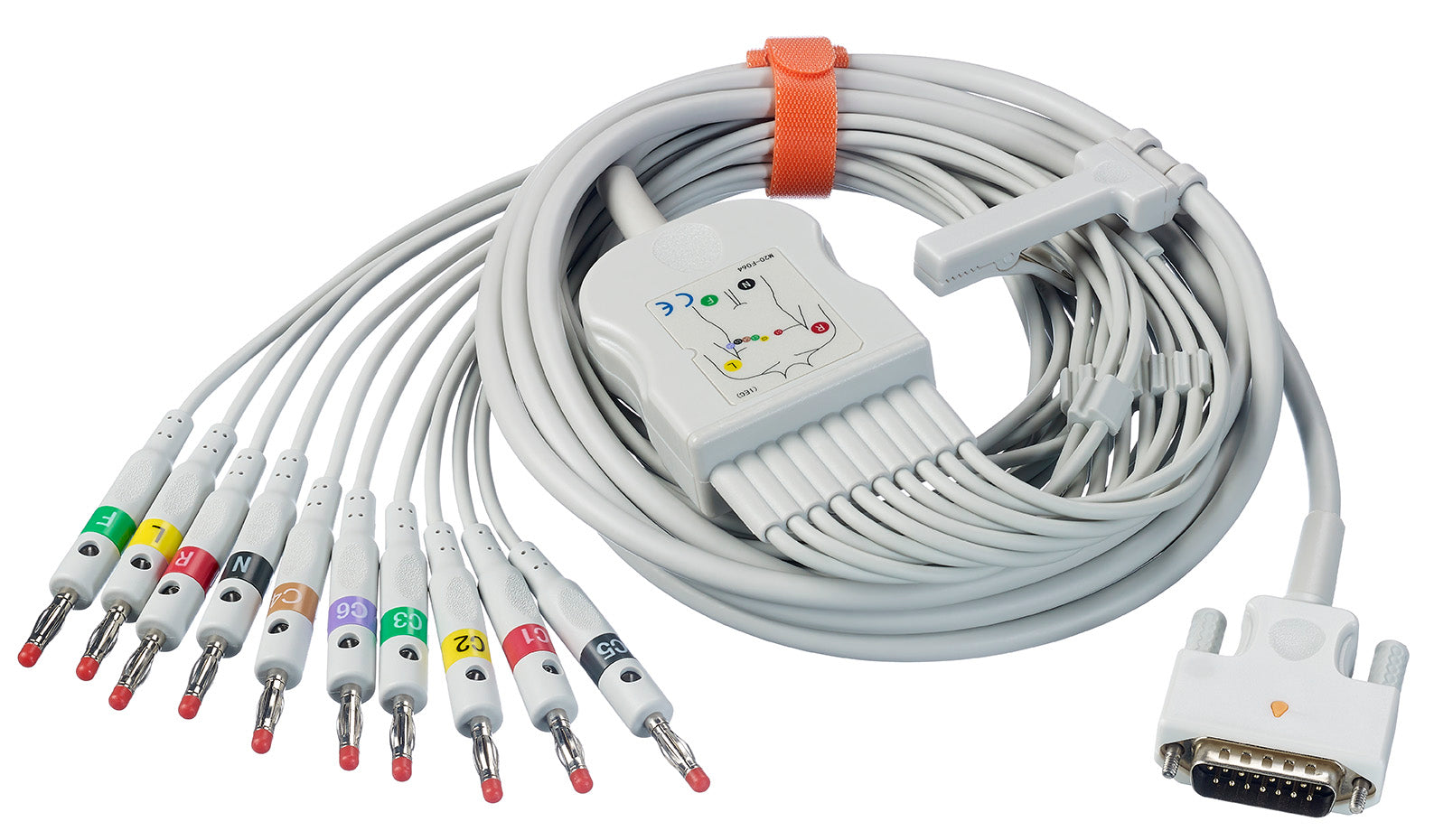Markpol General Dealers
Online Store & Catalogue
ECG cables with pin-type connectors are commonly used to connect ECG electrodes to the monitoring device. Here are some key points regarding pin-type ECG cables:
Key Features:
-
Connector Type:
- Pin-type connectors often feature sharp, cylindrical pins that securely attach to corresponding female sockets on the ECG machine or electrodes.
-
Compatibility:
- These cables are typically compatible with various ECG machines, but it's important to verify that the pin configuration matches the device being used.
-
Lead Wires:
- Pin-type ECG cables usually come with multiple lead wires, allowing for the connection of multiple ECG electrodes (e.g., 3-lead, 5-lead, or 12-lead configurations).
-
Insulation:
- Made with durable, insulated materials to protect against electrical interference and ensure patient safety.
-
Flexibility:
- Designed to be flexible and lightweight, making them easy to handle during patient monitoring.
-
Color Coding:
- Often color-coded to help healthcare professionals quickly identify and connect the correct leads to the appropriate electrodes.
-
Durability:
- Built to withstand repeated use, with reinforced connections to minimize wear and tear over time.
Common Applications:
- Used in various clinical settings, including hospitals, clinics, and emergency care environments, for continuous monitoring of heart activity.
Additional information
| Weight | 0.5 kg |
|---|



Reviews
There are no reviews yet.